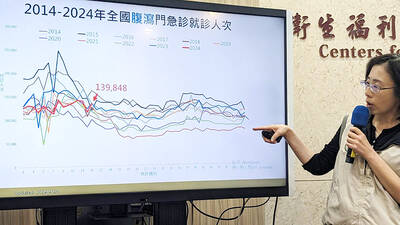Taiwan is to receive the first of 50 intercity express trains from Japanese manufacturer Hitachi Rail about one month later than scheduled on July 30, the Taiwan Railways Administration (TRA) said.
The first train delivery had been delayed by about a month because Japanese technicians were unable to visit Taiwan last month due to strict border controls following a COVID-19 outbreak that started in May, the TRA said in a statement on Wednesday.
Taiwan has imposed an entry ban on foreign nationals, and only those with a residence permit or who have obtained special permission from authorities are allowed to enter the nation.

Photo courtesy of the Taiwan Railways Administration
Subsequent deliveries, including six trains of the same model that the TRA had expected to receive by the end of the year, could also be delayed, it said, adding that its plan to have all 50 trains by 2024 remains unchanged.
After the new train, an EMU3000 model consisting of 12 cars, arrives at the Port of Hualien, it would be tested for quality and safety for about three months before entering service, the TRA said.
The TRA, Hitachi and TUV Rheinland Taiwan would oversee the testing, with TUV Rheinland performing independent verification and validation, the agency said.
Nine Hitachi engineers arrived on Monday and are in quarantine, while another 26 engineers and supervisors are expected to arrive soon, and complete 14-day quarantines and other health-related requirements before the end of the month, TRA said.
The TRA ordered 50 EMU3000 trains to retire trains that are more than 30 years old and provide additional seating capacity on Taiwan’s east coast line, tickets for which can be difficult to obtain.
The TRA has said that the new trains would “effectively solve the difficulties passengers have in obtaining tickets to travel to Hualien or Taitung.”
The most commonly used trains for those destinations are the Taroko and Puyuma express trains, which only have eight cars.

FLU SEASON: Twenty-six severe cases were reported from Tuesday last week to Monday, including a seven-year-old girl diagnosed with influenza-associated encephalopathy Nearly 140,000 people sought medical assistance for diarrhea last week, the Centers for Disease Control (CDC) said on Tuesday. From April 7 to Saturday last week, 139,848 people sought medical help for diarrhea-related illness, a 15.7 percent increase from last week’s 120,868 reports, CDC Epidemic Intelligence Center Deputy Director Lee Chia-lin (李佳琳) said. The number of people who reported diarrhea-related illness last week was the fourth highest in the same time period over the past decade, Lee said. Over the past four weeks, 203 mass illness cases had been reported, nearly four times higher than the 54 cases documented in the same period

A group of Taiwanese-American and Tibetan-American students at Harvard University on Saturday disrupted Chinese Ambassador to the US Xie Feng’s (謝鋒) speech at the school, accusing him of being responsible for numerous human rights violations. Four students — two Taiwanese Americans and two from Tibet — held up banners inside a conference hall where Xie was delivering a speech at the opening ceremony of the Harvard Kennedy School China Conference 2024. In a video clip provided by the Coalition of Students Resisting the CCP (Chinese Communist Party), Taiwanese-American Cosette Wu (吳亭樺) and Tibetan-American Tsering Yangchen are seen holding banners that together read:

UNAWARE: Many people sit for long hours every day and eat unhealthy foods, putting them at greater risk of developing one of the ‘three highs,’ an expert said More than 30 percent of adults aged 40 or older who underwent a government-funded health exam were unaware they had at least one of the “three highs” — high blood pressure, high blood lipids or high blood sugar, the Health Promotion Administration (HPA) said yesterday. Among adults aged 40 or older who said they did not have any of the “three highs” before taking the health exam, more than 30 percent were found to have at least one of them, Adult Preventive Health Examination Service data from 2022 showed. People with long-term medical conditions such as hypertension or diabetes usually do not

Heat advisories were in effect for nine administrative regions yesterday afternoon as warm southwesterly winds pushed temperatures above 38°C in parts of southern Taiwan, the Central Weather Administration (CWA) said. As of 3:30pm yesterday, Tainan’s Yujing District (玉井) had recorded the day’s highest temperature of 39.7°C, though the measurement will not be included in Taiwan’s official heat records since Yujing is an automatic rather than manually operated weather station, the CWA said. Highs recorded in other areas were 38.7°C in Kaohsiung’s Neimen District (內門), 38.2°C in Chiayi City and 38.1°C in Pingtung’s Sandimen Township (三地門), CWA data showed. The spell of scorching